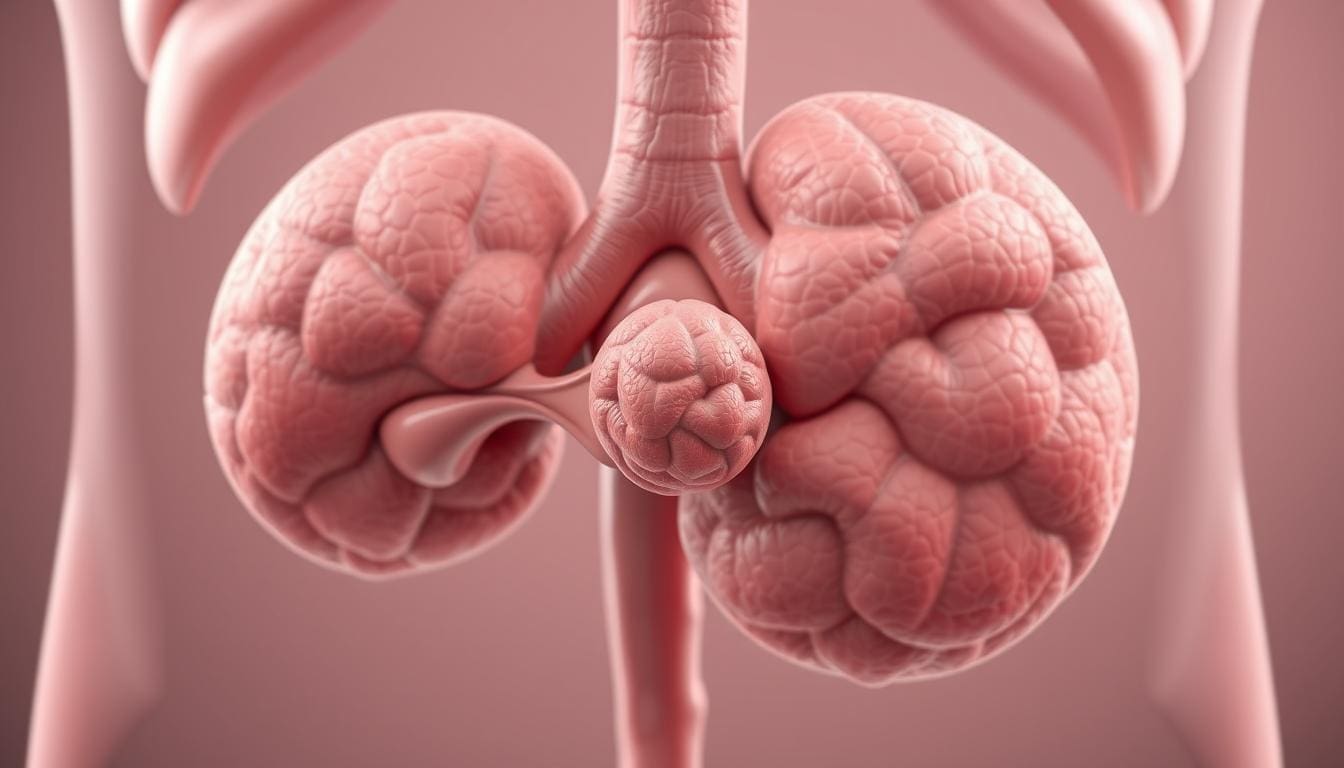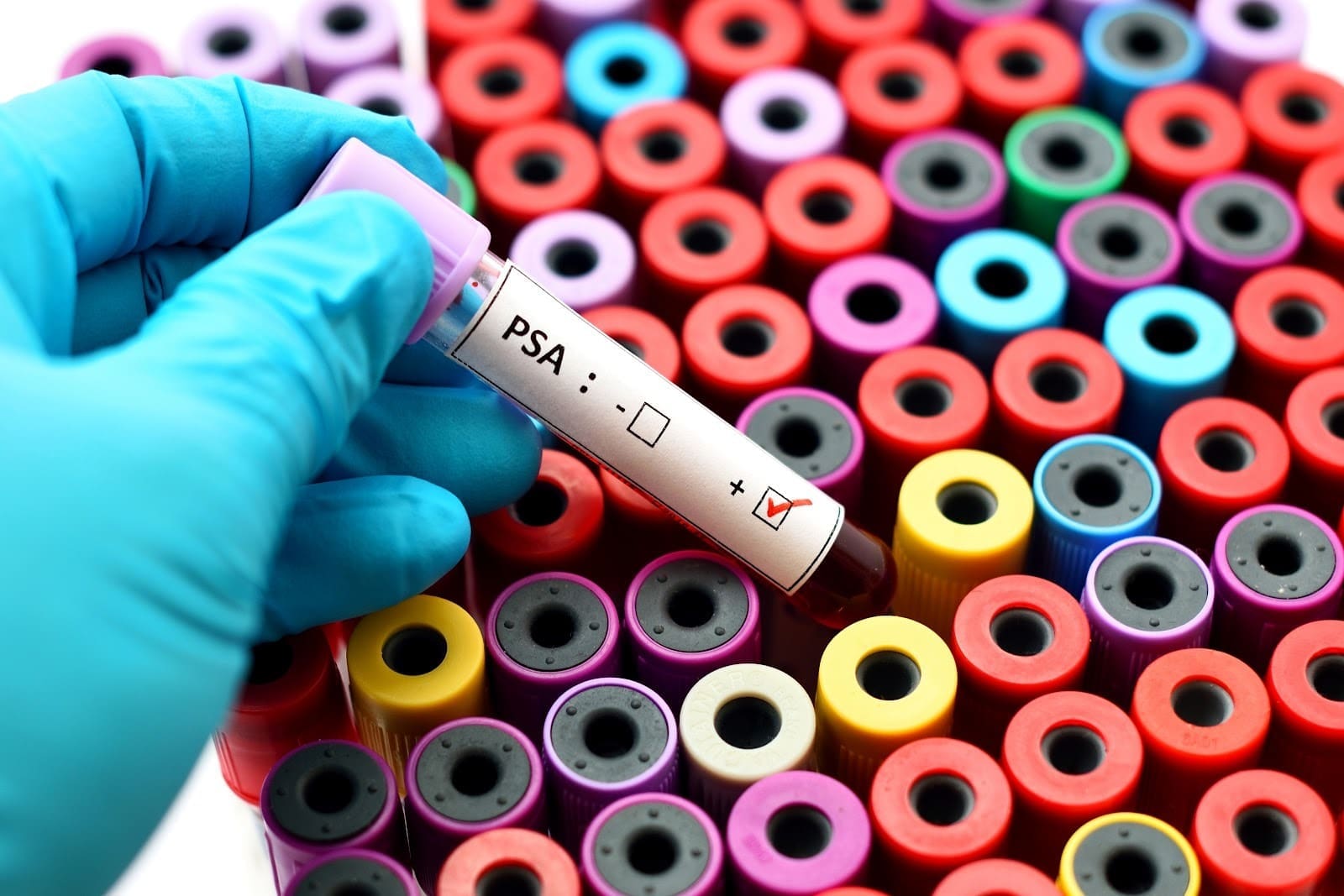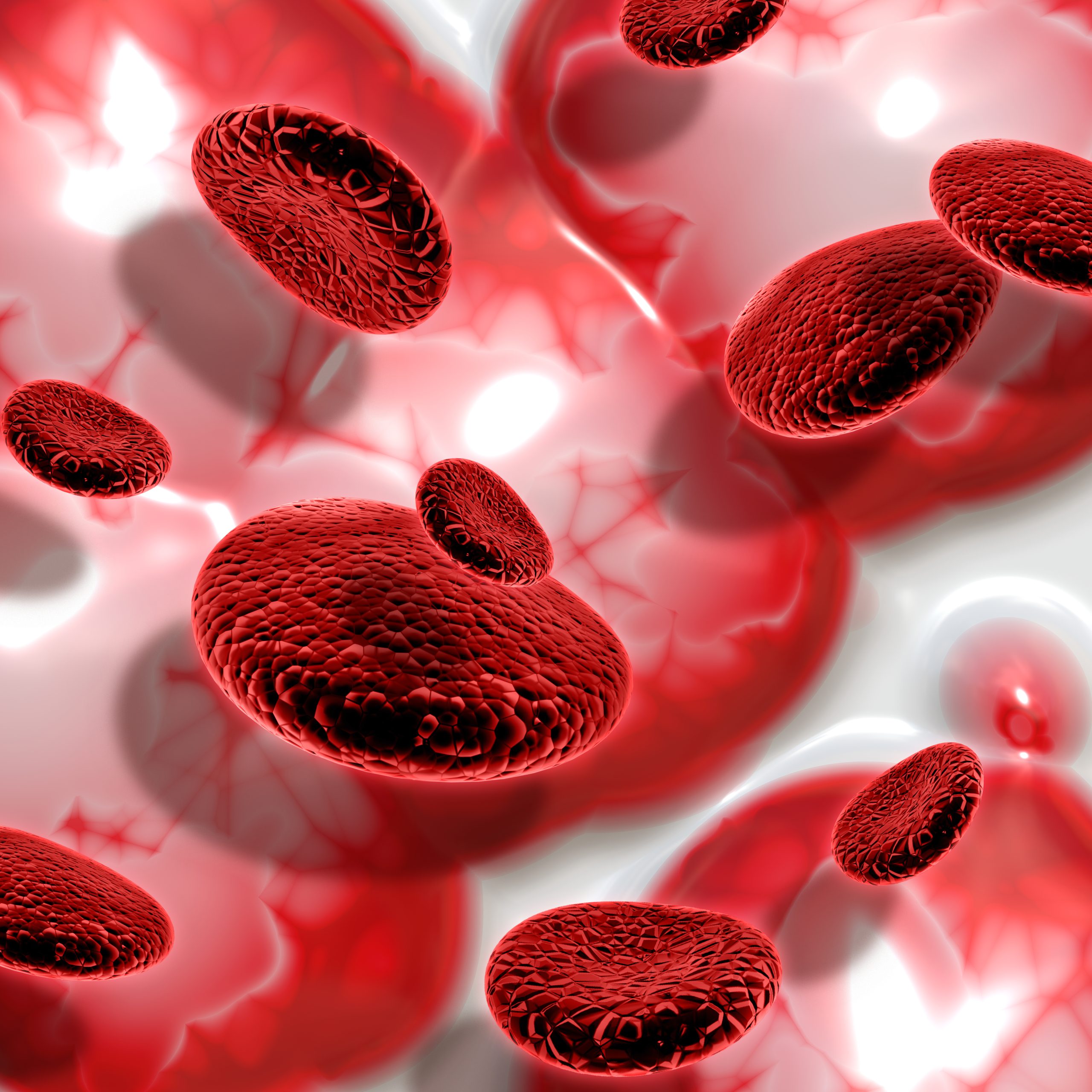Last Updated on November 26, 2025 by Bilal Hasdemir

At Liv Hospital, we know how complex adrenocortical carcinoma is. It’s a rare and aggressive cancer from the adrenal cortex. It’s different from other adrenal tumors because it can spread and grow quickly.
Adrenal gland cancer is a wide term for many tumors, including adrenocortical carcinoma. It’s rare, happening to about 1-2 people per million each year. This makes up a small part of all adrenal cortex tumors.
It’s important to know the differences between adrenocortical carcinoma and other adrenal cancers. This helps us diagnose and treat it better. Our team is dedicated to top-notch healthcare for everyone, including international patients.
Key Takeaways
- Adrenocortical carcinoma is a rare and aggressive cancer originating in the adrenal cortex.
- It is distinct from other adrenal tumors due to its high risk of spreading and growing.
- Annual incidence is estimated at 1-2 per million worldwide.
- Accurate diagnosis and effective treatment rely on understanding the differences between adrenocortical carcinoma and other adrenal cancers.
- Liv Hospital provides patient-centered care and commitment to international excellence.
Understanding the Adrenal Glands and Their Function
The adrenal glands sit on top of each kidney. They make hormones that control how our body works, like metabolism and blood pressure. These glands are small but very important for our health and how we handle stress.
Anatomy and Location of the Adrenal Glands
The adrenal glands are found on top of each kidney. They have two parts: the outer adrenal cortex and the inner adrenal medulla. Each part makes different hormones.
We will look at what each part does and the hormones they make. This helps us understand adrenocortical carcinoma better.
The Adrenal Cortex vs. Adrenal Medulla
The adrenal cortex is the outer layer. It makes steroid hormones like cortisol and aldosterone. These hormones help control our metabolism and blood pressure.
The adrenal medulla is the inner part. It makes hormones like adrenaline and noradrenaline. These hormones help us react to stress.
Hormones Produced by the Adrenal Cortex
The adrenal cortex makes important steroid hormones:
- Cortisol: Helps with metabolism, immune response, and stress.
- Aldosterone: Keeps electrolyte balance and blood pressure right.
- Androgens: Helps with male traits and reproductive health.
These hormones are key for keeping our body balanced and responding to stress. If they’re not made right, it can cause health problems like endocrine disorders and adrenocortical carcinoma.
| Hormone | Function | Dysregulation Consequences |
|---|---|---|
| Cortisol | Regulates metabolism, immune response | Cushing’s syndrome, adrenal insufficiency |
| Aldosterone | Controls electrolyte balance, blood pressure | Hypertension, electrolyte imbalances |
| Androgens | Contributes to male characteristics, reproductive activity | Hirsutism, virilization |
Knowing how the adrenal glands work and what hormones they make is key. It helps us understand adrenocortical carcinoma and other adrenal gland problems.
Adrenocortical Cancer: Definition and Epidemiology
Adrenocortical carcinoma starts in the adrenal cortex and is a rare cancer with a tough prognosis. We will look into its definition, how common it is, and what causes it.
Defining Adrenocortical Carcinoma
Adrenocortical carcinoma (ACC) is a cancer that grows in the adrenal cortex, the outer part of the adrenal gland. It grows fast and can make too much hormone, causing health problems.
Key characteristics of ACC include:
- Origin in the adrenal cortex
- Malignant nature with the chance to spread
- Possible hormonal activity causing endocrine disorders
Incidence and Prevalence Worldwide
ACC happens in about 1-2 people per million each year, making it a rare cancer. But, some groups get it more often, showing that genes or the environment might affect it.
Regional variations in incidence show how complex ACC’s spread is. For example, kids in South Brazil get it more often because of a specific gene.
Risk Factors for Developing ACC
There are several things that can increase your chance of getting ACC, like genes and some environmental factors. Knowing these can help find it early and manage it better.
Known risk factors include:
- Genetic syndromes like Li-Fraumeni syndrome
- Being exposed to certain toxins
- Having had adrenal tumors or other cancers before
By knowing these risks, doctors can watch people more closely and maybe help them live longer.
Types of Adrenal Tumors and Their Differences
The adrenal glands can have different types of tumors. These range from benign adenomas to malignant carcinomas. Knowing about these types is key for the right diagnosis and treatment.
Benign vs. Malignant Adrenal Tumors
Adrenal tumors fall into two main categories: benign and malignant. Benign adrenal tumors are not cancerous and usually don’t spread. On the other hand, malignant adrenal tumors are cancerous and can spread to other parts of the body.
We will look into the characteristics of both types. This will help us understand their differences and how they affect patient care.
- Benign tumors are small and often don’t cause symptoms.
- Malignant tumors grow bigger and can cause symptoms due to hormonal imbalances or local invasion.
Adrenocortical Adenomas
Adrenocortical adenomas are benign tumors from the adrenal cortex. They can be functional, making too much hormone, or non-functional. Functional adenomas can lead to hormonal imbalances, causing symptoms.
We will talk about diagnosing and managing adrenocortical adenomas. We’ll see how they differ from malignant adrenal tumors.
Pheochromocytomas and Other Adrenal Medulla Tumors
Pheochromocytomas are rare tumors from the adrenal medulla. They can make too much catecholamine, causing high blood pressure, fast heart rate, and sweating.
It’s important to understand pheochromocytomas and other adrenal medulla tumors. This helps in diagnosing and treating these conditions effectively.
- Pheochromocytomas are usually benign but can be malignant in some cases.
- Diagnosis involves biochemical testing and imaging studies.
- Treatment usually means surgically removing the tumor.
Clinical Presentation and Symptoms of Adrenocortical Carcinoma
Adrenocortical carcinoma can show a wide range of symptoms. These include signs from too much hormone and effects from the tumor growing. It’s key to know these symptoms well for the right diagnosis and treatment.
Hormone-Related Symptoms
Some adrenocortical carcinomas make too many hormones. This leads to endocrine disorders. Symptoms include:
- Cushing’s syndrome, with too much cortisol, causing weight gain, high blood pressure, and sugar issues.
- Virilization in women, showing as too much hair, deep voice, and irregular periods from too much androgen.
- Hypertension and low potassium from tumors that make aldosterone.
These symptoms come from the tumor making hormones or precursors. They can really affect a person’s life quality.
Non-Hormonal Symptoms and Local Effects
Patients with adrenocortical carcinoma also have symptoms not caused by hormones. These include:
- Abdominal pain or discomfort from the tumor growing.
- Weight loss, tiredness, and feeling unwell.
- A noticeable mass in the abdomen in some cases.
These symptoms are often not clear and can be like other conditions. This makes it hard to diagnose.
Metastatic Disease Presentation
Adrenocortical carcinoma can spread to other parts of the body. Common places are the lungs, liver, and lymph nodes. Symptoms depend on where and how much it spreads but may include:
- Respiratory issues like cough or trouble breathing if the lungs are involved.
- Problems with the liver or pain in the right upper abdomen if the liver is affected.
- Enlarged lymph nodes that can be felt.
Spotting these symptoms early and getting the right tests is key for treating adrenocortical carcinoma.
Diagnosis and Staging of Adrenocortical Cancer
Diagnosing and staging adrenocortical carcinoma need a team effort. This includes tests, scans, and looking at tissue samples. This detailed approach helps doctors know how serious the cancer is and what treatment to use.
Biochemical Testing and Hormone Evaluation
Testing hormones is key in finding and understanding adrenocortical carcinoma. These tests check for hormone imbalances and extra hormone production. Important tests include checking cortisol, aldosterone, androgens, and other hormones from the adrenal gland.
“Testing hormones is very important to see if the tumor is active,” say experts. These tests help doctors figure out the tumor’s activity level. This information helps in planning treatment.
Imaging Studies for ACC
Scans and images are essential for finding and understanding adrenocortical carcinoma. Computed tomography (CT) and magnetic resonance imaging (MRI)
- CT scans show tumor size, location, and if it’s invading nearby areas.
- MRI is better at showing soft tissue details, helping to see how far the tumor has spread and if it’s affecting blood vessels.
Biopsy Considerations
Deciding on a biopsy for adrenocortical carcinoma is careful. Fine-needle aspiration biopsy (FNAB) is usually avoided because it can spread the tumor. But, core needle biopsy might be an option in some cases.
“Biopsy in adrenocortical carcinoma is limited because of the risk of tumor rupture and spreading,” says a top oncologist. We consider the benefits and risks of biopsy for each patient’s treatment plan.
Staging Systems and Prognostic Factors
Staging and prognostic factors are important for planning treatment and predicting outcomes for adrenocortical carcinoma. The ENSAT (European Network for the Study of Adrenal Tumors) staging system is often used. It classifies tumors based on size, invasion, and if it has spread.
| ENSAT Stage | Description |
|---|---|
| I | Tumor ≤5 cm, no local invasion |
| II | Tumor >5 cm, no local invasion |
| III | Tumor of any size with local invasion or positive lymph nodes |
| IV | Distant metastasis present |
Factors like tumor stage, grade, and molecular traits help predict how well a patient will do. These factors guide in making treatment plans tailored to each patient with adrenocortical carcinoma.
Genetic and Molecular Basis of Adrenocortical Carcinoma
Understanding the genetic basis of adrenocortical carcinoma is key to solving its mysteries. Recent genetic research has greatly improved our knowledge of ACC’s molecular mechanisms.
Hereditary Syndromes Associated with ACC
Several hereditary syndromes raise the risk of adrenocortical carcinoma. Li-Fraumeni syndrome, caused by TP53 mutations, is well-known. Other syndromes include Beckwith-Wiedemann and Multiple Endocrine Neoplasia Type 1 (MEN1).
| Syndrome | Gene Mutation | Associated Risks |
|---|---|---|
| Li-Fraumeni Syndrome | TP53 | ACC, Sarcomas, Breast Cancer |
| Beckwith-Wiedemann Syndrome | Chromosome 11p15.5 | ACC, Wilms Tumor, Organomegaly |
| MEN1 | MEN1 | ACC, Parathyroid Tumors, Pancreatic Neuroendocrine Tumors |
Molecular Pathways and Genetic Alterations
ACC’s molecular pathogenesis involves complex changes in signaling pathways. The IGF2 gene’s overexpression promotes tumor growth. Mutations in CTNNB1 and PRKAR1A also play a role in ACC development.
Implications for Targeted Therapies
Understanding ACC’s genetics and molecular basis is vital for targeted therapies. Identifying genetic and molecular changes helps researchers create targeted treatments. For example, therapies targeting the IGF2 pathway are being explored for ACC.
We’re making strides in understanding ACC’s genetic and molecular roots. This progress offers hope for better treatments for this challenging disease.
Treatment Approaches for Adrenocortical Cancer
Managing adrenocortical carcinoma (ACC) requires a team effort. This includes surgery, systemic therapy, and radiation. Each treatment is chosen based on the patient’s health and the cancer’s stage.
Surgical Management
Surgery is key for treating ACC early on. The goal is to remove the tumor and any affected tissues or lymph nodes. Having skilled surgeons is vital for the best results.
- Complete Resection: The best surgery is an open adrenalectomy. It removes the tumor and nearby tissues all at once.
- Laparoscopic Surgery: For small tumors, laparoscopic surgery might be an option. But, there are risks of tumor rupture and not removing enough tissue.
- Debulking Surgery: If removing the tumor completely isn’t possible, debulking surgery is done. It aims to reduce the tumor size and ease symptoms.
Systemic Therapy Options
Systemic therapy is important for treating advanced ACC. There are several options, including:
- Chemotherapy: A mix of etoposide, doxorubicin, and cisplatin (EDP) is often used.
- Mitotane Therapy: This drug helps control hormone levels and may slow tumor growth.
- Targeted Therapies: Researchers are looking into treatments like IGF-1R inhibitors.
Choosing systemic therapy depends on the tumor, the patient’s health, and any previous treatments.
Radiation Therapy Role
Radiation therapy is used in different ways, including:
- Adjuvant Therapy: It helps prevent the tumor from coming back after surgery.
- Palliative Care: It helps manage symptoms and improve life quality for those with advanced disease.
New radiation methods, like IMRT, have made radiation therapy safer and more effective for ACC.
Advanced Multidisciplinary Care for Adrenocortical Cancer Patients
Adrenocortical carcinoma is a rare and aggressive cancer. It needs a team effort for the best treatment. This approach helps improve patient outcomes.
Managing Treatment Side Effects
Handling treatment side effects is key in ACC care. Treatments like surgery and chemotherapy can have big side effects. Our team uses supportive care measures to reduce these effects.
- Early intervention for side effects
- Personalized care plans
- Access to supportive care services
Evidence-Based Advances in Patient Care
Keeping up with the latest research is vital for ACC patients. Our team stays updated with new treatments. This includes targeted therapies and other innovative methods.
By using the latest research, we offer our patients access to new treatments. Our focus on evidence-based care ensures top-notch care for our patients.
Conclusion: Future Directions in ACC Research and Treatment
As we learn more about adrenocortical carcinoma (ACC), it’s clear that research and new treatments are key. Studies on the genetic and molecular causes of ACC are giving us new ideas for treatments. These ideas could lead to more targeted therapies.
Now, we’re moving towards treatments that are more tailored to each patient. This change is thanks to the progress in ACC research. New treatments, like targeted and immunotherapies, are being tested in clinical trials.
It’s important to keep supporting and working together in ACC research. This will help us tackle the tough challenges of this rare and aggressive cancer. By doing this, we can make sure patients with ACC get the best care possible, leading to better outcomes and a better quality of life.
FAQ
What is adrenocortical carcinoma?
Adrenocortical carcinoma (ACC) is a rare and aggressive cancer. It starts in the adrenal cortex, the outer layer of the adrenal gland. This cancer is different because it can spread and grow quickly.
What are the risk factors for developing adrenocortical carcinoma?
Certain genetic conditions, like Li-Fraumeni syndrome, increase the risk of ACC. Environmental factors also play a role. Some genetic changes can make a person more likely to get ACC.
What are the symptoms of adrenocortical carcinoma?
Symptoms vary based on the tumor’s hormone production. Hormone-producing tumors can lead to Cushing’s syndrome, virilization, and high blood pressure. Non-hormonal symptoms include abdominal pain and weight loss.
How is adrenocortical carcinoma diagnosed?
Diagnosing ACC involves several steps. Biochemical tests check for hormone imbalances. Imaging studies like CT and MRI scans help see the tumor. A biopsy might also be needed.
What are the treatment options for adrenocortical carcinoma?
Treatments include surgery, systemic therapy, and radiation. Surgery is key for early-stage disease. For more advanced cases, systemic therapy is used.
What is the role of genetic testing in adrenocortical carcinoma?
Genetic testing can spot hereditary syndromes linked to ACC, like Li-Fraumeni syndrome. Knowing the genetic and molecular causes helps in finding targeted treatments.
What is the prognosis for adrenocortical carcinoma?
ACC has a poor prognosis due to its aggressive nature. But, early and accurate diagnosis, along with advanced care, can improve outcomes.
What is the importance of multidisciplinary care for adrenocortical carcinoma patients?
Multidisciplinary care is vital for ACC patients. It ensures a team approach to care, including managing side effects and using the latest treatments.
What are the future directions in adrenocortical carcinoma research and treatment?
Research into ACC’s genetics and molecular basis is ongoing. Advances in treatment will continue to help patients. Collaboration and research are key to tackling this challenging cancer.
References
- MedlinePlus — Encyclopedia: Adrenal Gland Anatomy & Function
- https://medlineplus.gov/ency/article/001663.htm
- VICC — Cancer Info: Adult Adrenocortical Carcinoma
- https://vicc.org/cancer-info/adult-adrenocortical-carcinoma
Canadian Cancer Society — Adrenal Gland Cancer: Signs and Symptoms
https://cancer.ca/en/cancer-information/cancer-types/adrenal-gland/signs-and-symptoms
Winship Cancer (Emory) — Adrenal Cancer: Signs and Symptoms
https://winshipcancer.emory.edu/cancer-types-and-treatments/adrenal-cancer/signs-and-symptoms.php






